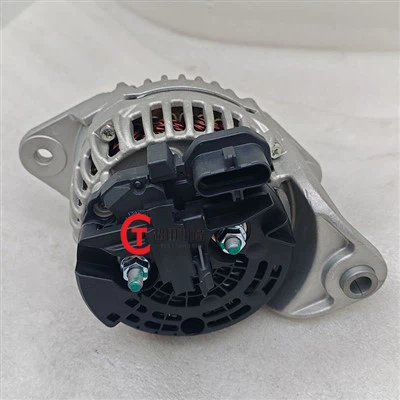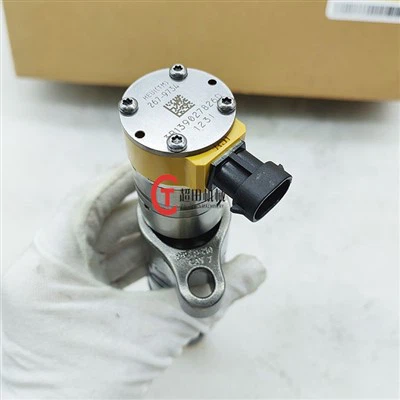As a long - time supplier of fuel injection pumps, I've witnessed firsthand the diverse needs of our customers when it comes to the types of fuel these pumps can handle. In this blog, I'll delve into the various fuels that fuel injection pumps are designed to work with, exploring their characteristics, advantages, and limitations.
Diesel Fuel
Diesel fuel is the most common fuel for fuel injection pumps, especially in diesel engines. Diesel engines are known for their high torque and fuel efficiency, making them popular in heavy - duty applications such as trucks, buses, construction equipment, and agricultural machinery.
The main advantage of diesel fuel is its energy density. It contains more energy per unit volume compared to gasoline, which means that diesel engines can extract more power from the same amount of fuel. Diesel fuel also has better lubricating properties, which is beneficial for the fuel injection pump. The moving parts inside the pump, such as the plungers and barrels, rely on the lubrication provided by the fuel to reduce wear and tear.
However, diesel fuel has a higher cetane number requirement. The cetane number is a measure of the ignition quality of diesel fuel. A higher cetane number indicates that the fuel will ignite more easily and quickly in the engine's combustion chamber. If the cetane number is too low, the engine may experience hard starting, rough idling, and increased emissions.
Our company offers a wide range of fuel injection pumps suitable for diesel engines. For example, the Excavator Diesel Engine Fuel Injection Pump 3190677 319 - 0677 for C9 Engine is specifically designed for excavators powered by C9 engines. This pump is engineered to handle high - quality diesel fuel efficiently, ensuring smooth operation and optimal performance of the engine.
Biodiesel
Biodiesel is a renewable alternative to traditional diesel fuel. It is made from vegetable oils, animal fats, or recycled cooking grease. Biodiesel has several environmental benefits, such as reduced greenhouse gas emissions and lower sulfur content.
Most modern fuel injection pumps can handle biodiesel blends up to a certain percentage. For example, B20, which is a blend of 20% biodiesel and 80% petroleum - based diesel, is commonly used. Biodiesel has similar properties to diesel fuel, but it has a slightly different chemical composition. It has better lubricity than diesel fuel, which can be beneficial for the fuel injection pump.
However, there are some challenges associated with using biodiesel. Biodiesel has a higher viscosity than diesel fuel, especially at low temperatures. This can cause problems with fuel flow and atomization in the fuel injection pump. In cold weather, biodiesel may also gel, which can block the fuel lines and filters. Additionally, biodiesel is more prone to oxidation, which can lead to the formation of deposits in the fuel injection system.
Our 326 - 4635 3264635 Fuel Injection Pump for E320D Excavator is designed to handle a certain range of biodiesel blends. Our engineering team has optimized the pump's design to ensure compatibility with different fuel compositions, providing reliable performance even when using biodiesel blends.
Gasoline
Gasoline is the primary fuel for spark - ignition engines. While fuel injection pumps are more commonly associated with diesel engines, there are also fuel injection systems for gasoline engines. Gasoline fuel injection pumps are responsible for delivering the right amount of gasoline to the engine's cylinders at the correct pressure and timing.
Gasoline has a lower energy density than diesel fuel but a lower boiling point. It is more volatile, which means it vaporizes more easily. This property is important for the combustion process in gasoline engines, as the fuel needs to be in a vapor state to mix with air and ignite.
Gasoline fuel injection pumps are designed to operate at different pressures compared to diesel fuel injection pumps. They need to provide a fine mist of gasoline for efficient combustion in the engine's cylinders. The design of the injection nozzles and the control systems are also different to accommodate the properties of gasoline.


Compressed Natural Gas (CNG) and Liquefied Natural Gas (LNG)
Natural gas, in the form of CNG or LNG, is becoming an increasingly popular alternative fuel for vehicles. Natural gas is a clean - burning fuel that produces fewer emissions compared to gasoline and diesel.
Fuel injection pumps for natural gas engines are designed to handle the unique properties of natural gas. CNG is stored in high - pressure cylinders, and the fuel injection pump needs to regulate the pressure and flow of the gas into the engine. LNG, on the other hand, is stored in cryogenic tanks at very low temperatures. The fuel injection system for LNG engines needs to handle the phase change from liquid to gas and ensure proper delivery of the gas to the engine.
Natural gas has a lower energy density than gasoline and diesel, which means that vehicles running on natural gas may have a shorter range. However, the cost of natural gas is often lower, and the environmental benefits make it an attractive option for many fleet operators.
Ethanol
Ethanol is an alcohol - based fuel that is commonly used as a gasoline additive. It can also be used as a standalone fuel in flex - fuel vehicles. Ethanol has a high octane rating, which can improve the performance of gasoline engines. It is also a renewable fuel, as it can be produced from biomass such as corn, sugarcane, or wheat.
Fuel injection pumps for engines that use ethanol - blended fuels need to be compatible with the corrosive nature of ethanol. Ethanol can cause damage to certain materials, such as rubber and plastic components in the fuel injection system. Therefore, the materials used in the construction of the fuel injection pump need to be carefully selected to resist the effects of ethanol.
Our 723945 - 51330 Diesel Fuel Injection Pump YM723945 - 51330 for 4tnv94 4tnv98 can be adapted to handle certain ethanol - blended fuels, depending on the specific requirements of the engine. Our technical support team can provide guidance on the compatibility of our pumps with different fuel compositions.
Conclusion
In conclusion, fuel injection pumps are designed to handle a variety of fuels, each with its own unique properties and requirements. As a fuel injection pump supplier, we understand the importance of providing pumps that are compatible with different fuels. Our products are engineered to meet the highest standards of performance, reliability, and efficiency.
Whether you are looking for a fuel injection pump for a diesel engine, a biodiesel - powered vehicle, or an engine that uses alternative fuels such as CNG, LNG, or ethanol, we have the right solution for you. Our team of experts is always ready to assist you in selecting the most suitable fuel injection pump for your application.
If you are interested in purchasing our fuel injection pumps or have any questions about the types of fuel our pumps can handle, please feel free to contact us. We look forward to discussing your needs and providing you with the best possible solutions.
References
- Heywood, J. B. (1988). Internal Combustion Engine Fundamentals. McGraw - Hill.
- Bosch Automotive Handbook (7th Edition). Robert Bosch GmbH.
- Society of Automotive Engineers (SAE) Technical Papers.






